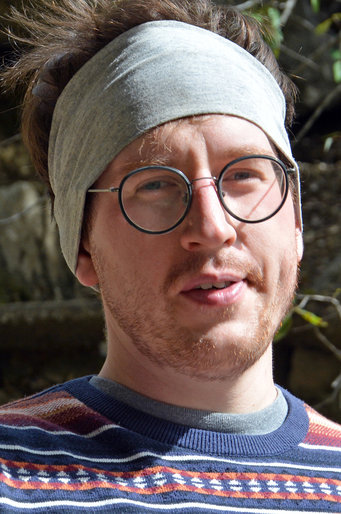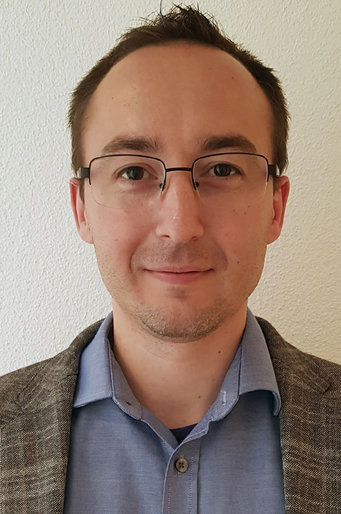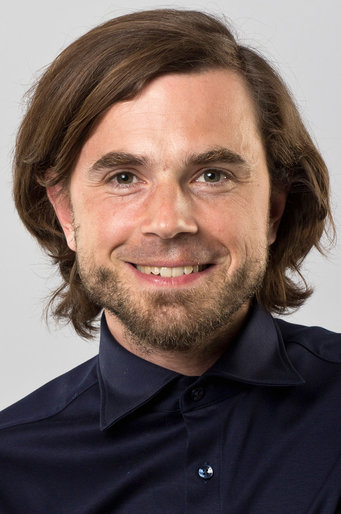Two life scientists and a mathematician succeed in the fourth call against a strong field of applicants from around the world
Mikołaj Frączyk, Przemysław Nogły and Mateusz Sikora will establish three new Dioscuri Centres at the Jagiellonian University in Krakow. The three Polish-born scientists, currently working in Germany, Switzerland and the US, will return to Poland over the next year and a half thanks to support from the Dioscuri Programme. The winners of the fourth international call for Dioscuri Centres published by the Max Planck Society and the National Science Centre Poland (NCN) will join the five Dioscuri Centres already established in Warsaw.
Mikołaj Frączyk, Dioscuri Centre in Random Walks in Geometry and Topology

Mikołaj Frączyk
© private
Mikołaj Frączyk, currently Dickson Instructor at the University of Chicago, first studied Pure Mathematics at Jagiellonian University in Krakow before moving to the Université Paris-Sud in France. After completing his award-winning doctoral thesis in 2017 in France, he stayed as a post-doc at the Renyi Institute in Budapest and the Institute for Advanced Study in Princeton. In fall 2023, Frączyk will establish a Dioscuri Centre in Random Walks in Geometry and Topology at the Faculty of Mathematics and Computer Sciences at the Jagiellonian University. He will be supported by his partner from Germany, Roman Sauer from the Karlsruhe Institute of Technology (KIT).
What motivated you to apply for a Dioscuri Centre and set up your new research group in Poland?
Mikołaj Frączyk: The Dioscuri Programme offered a very attractive opportunity to return to Poland. The conditions of the grant make international collaboration very easy and the opportunity to create a research team that early in the career would be hard to find elsewhere.
What kind of research will you be conducting at your Dioscuri Centre?
Mikołaj Frączyk: The main objective of the Centre is to develop probabilistic and dynamical methods to attack several outstanding open problems concerning locally symmetric spaces, arithmetic lattices, mapping class groups and interval exchange transformation groups. The locally symmetric spaces, on which most of my research focused so far, are geometric objects with incredibly rich structure. Thanks to the attractive interdisciplinary nature of the research, the Dioscuri Centre will grow collaborations with local research groups in this active and competitive research field that is not yet strongly represented in Poland.
Przemysław Nogły, Dioscuri Centre for Structural Dynamics of Receptors

Przemysław Nogły
© Pikyee Ma
Starting in summer 2022, Przemysław Nogły, currently a research group leader and Ambizione Fellow of the Swiss National Science Foundation at ETH Zurich, will establish the Dioscuri Centre for Structural Dynamics of Receptors at the Faculty of Biochemistry, Biophysics and Biotechnology of the Jagiellonian University. After studying Chemistry at the University of Opole (Poland), the structural biologist went to the Universidade Nova de Lisboa (Portugal), where he received his PhD in structural biochemistry within the Marie Curie Initial Training Network in 2013. He then conducted research as a Marie Curie Postdoctoral Fellow at the Paul Scherrer Institute (Switzerland) before moving to the Institute of Molecular Biology and Biophysics at ETH Zurich in 2017. Together with Joachim Heberle from Freie Universität Berlin, Nogły will use new experimental methods to investigate molecular mechanisms of proteins at his Dioscuri Centre.
What motivated you to apply for a Dioscuri Centre and set up your new research group in Poland?
Przemysław Nogły: After 14 years of my research work abroad, the idea to return to Poland was sparked by learning about the comprehensive framework of the Dioscuri Programme. The generous funding scheme supports ambitious projects, promotes links with distinguished German scientists and is co-organized by the Max Planck Society, long renowned for cultivating excellence in science. Another factor is Poland's continuously improving scientific environment with developing infrastructure and its nurturing by the competitive and attractive research grants such as those organized by the National Science Centre.
What kind of research will you be conducting at your Dioscuri Centre?
Przemysław Nogły: At our Centre, we will use new experimental methods to investigate molecular mechanisms of proteins. While many receptors are extensively studied due to their omnipresent and critical function ranging from light energy harvesting to unleashing the healing potential of medicines, the DC will involve a recently developed methodology at X-ray Free Electron Lasers that allow unprecedented insights into structural dynamics and molecular mechanisms of proteins. Time-resolved crystallography will provide a series of structural snapshots at a high spatiotemporal resolution that can be assembled into a molecular movie of the protein in action.
Mateusz Sikora, Dioscuri Centre for Modelling of Posttranslational Modifications

Mateusz Sikora
© Katarzyna Wrona
Mateusz Sikora, currently a Postdoctoral Fellow at the MPI for Biophysics (Frankfurt) also affiliated with the University of Vienna, first studied at the Jagiellonian University and then earned his PhD at the Institute of Physics of the Polish Academy of Sciences in Warsaw. In 2012, he went to Austria as a postdoc at the Institute of Science and Technology (IST Austria). Since 2017, Sikora has been working at the MPI for Biophysics in the Department of theoretical biophysics led by Gerhard Hummer, partially supported by the Erwin Schrödinger Fellowship. . In the future, Hummer will support Sikora as his German partner in the establishment of the Dioscuri Centre for Modelling of Posttranslational Modifications at the Małopolska Centre of Biotechnology (at Jagiellonian University).
What motivated you to apply for a Dioscuri Centre and set up your new research group in Poland?
Mateusz Sikora: Science in Poland is going through an unprecedented boost, with a growing number of institutes being competitive and recognizable globally. While this makes Polish institutions an enticing choice to perform leading edge science, there are limited long-term solutions supporting young group leaders with challenging research ideas, making it harder to fully leverage the international experience and facilitate transfer of knowledge. I applied to the Dioscuri Programme because it provides this missing element, supporting my stay at one of the best institutes in the field (which happens to be in Poland) while giving me the freedom to focus on carrying out my research.
What kind of research will you be conducting at your Dioscuri Centre?
Mateusz Sikora: The ongoing anti-pandemic effort made it clear that computer simulations became indispensable in integrating and interpreting results of experiments and resolving molecular mechanisms and structures. Building on my previous experiences in simulating membrane protein complexes, my team and I will set up a simulation platform tailored to resolve the role of posttranslational modifications (PTMs) in protein-protein interactions. Our biocomputational approach will help illuminate the molecular mechanisms of PTMs, which remain largely unknown due to experimental difficulties and the characteristics of PTMs. Since PTMs are potent cancer biomarkers, play a role in metastasis and are crucial in development of anti-cancer and anti-viral vaccines, our findings might have a broader impact.
Background: The Dioscuri Programme
The Dioscuri Programme, which was initiated by the Max Planck Society, aims to establish internationally competitive research groups in Central and Eastern Europe. Each of these Dioscuri Centres is financed with up to 1.5 million euros for a period of five years. The costs are shared equally between the Federal Ministry of Education and Research (BMBF) and the Polish Ministry of Education and Science (MEiN), while the host institutions in Poland provide the infrastructure. After its successful start in Poland, the program has recently been extended to the Czech Republic, where a first call for Czech Dioscuri Centres is currently open.






